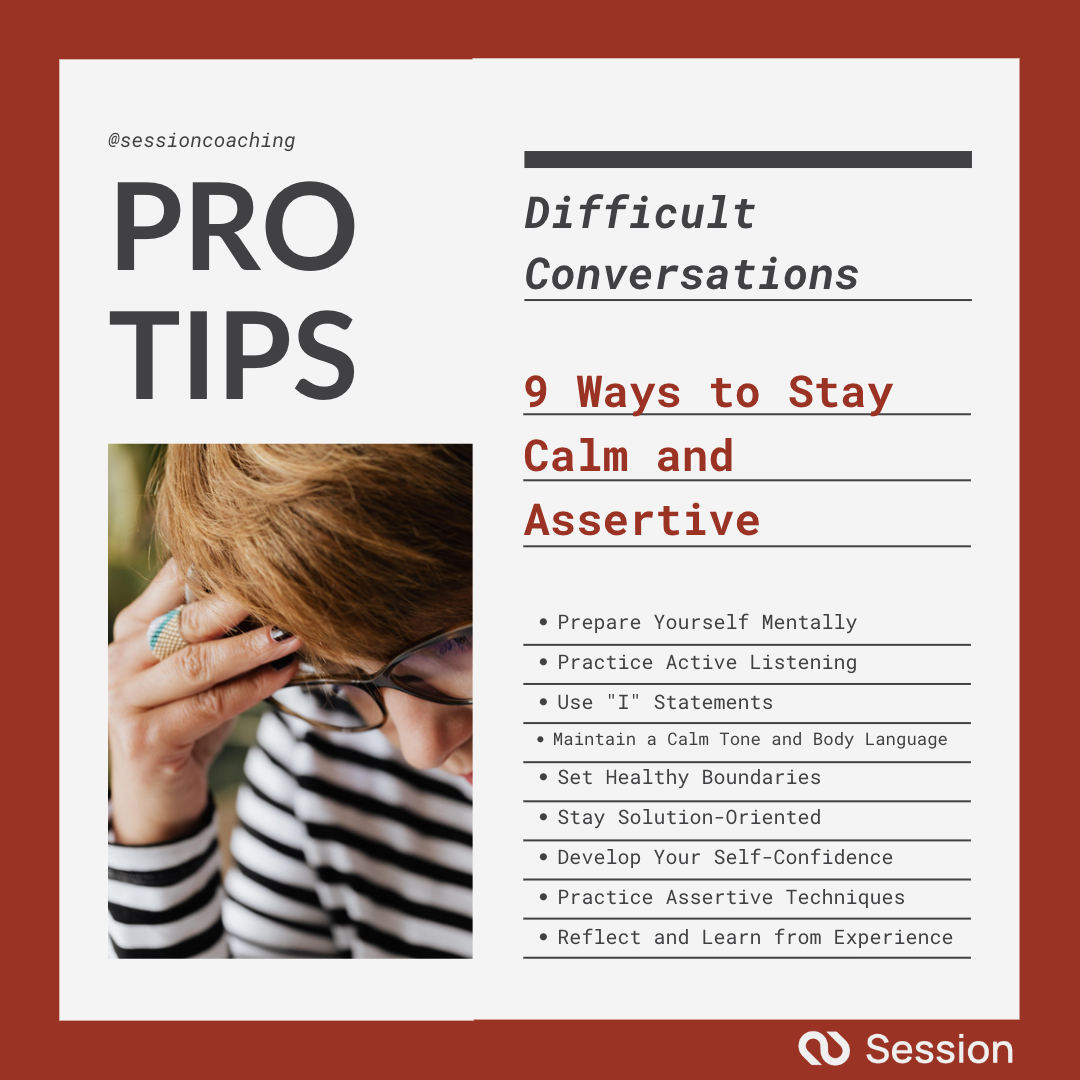In today's fast-paced and high-pressure environment, it's essential for professionals to develop strong communication skills. Being calm and assertive in conversations can help you express yourself more effectively, establish boundaries, and maintain healthy relationships. This guide will provide you with practical tips and best practices to stay calm and assertive during difficult conversations, drawing from expert recommendations in the field.

1. Prepare Yourself Mentally
Before engaging in a conversation, take a moment to ground yourself and set clear intentions. Remind yourself of your values and goals, and visualize a successful outcome. This mental preparation will help you remain focused and assertive throughout the conversation.
2. Practice Active Listening
Active listening is crucial for staying calm and assertive during conversations. Pay close attention to what the other person is saying, and avoid interrupting or jumping to conclusions. This will demonstrate respect for their opinions and allow you to respond more thoughtfully.
3. Use "I" Statements
To express your thoughts and feelings assertively, use "I" statements instead of "you" statements. This will help you take ownership of your emotions and reduce the likelihood of the other person becoming defensive.
4. Maintain a Calm Tone and Body Language
Your tone of voice and body language play a significant role in how others perceive you. Speak clearly and calmly, and maintain open, confident body language. Try to deliberately slow yourself down during the conversation, if you notice you instinctively speed up as the conversation unfolds. This will help you stay assertive without coming across as aggressive or confrontational.
5. Set Healthy Boundaries
Establishing healthy boundaries is crucial for maintaining assertiveness in conversations. Clearly communicate your limits when needed, and don't hesitate to remind others when they have crossed them. This will help create a healthier, more respectful dynamic. It goes without saying that you should also respect the boundaries of others.
6. Stay Solution-Oriented
Instead of dwelling on problems or becoming defensive, focus on finding solutions and collaborating with the other person. This approach will foster a more productive and assertive conversation. If you feel the conversation has focused on the negatives and past experiences for too long, don't hesitate to pivot the conversation by asking, "So, what can we do now to move forward?" Alternatively, you could suggest a solution yourself.
7. Develop Your Self-Confidence
Believing in your abilities and self-worth is essential for assertive communication. To build self-confidence, practice positive self-talk, invest in personal growth, and celebrate your achievements.
8. Practice Assertive Techniques
Regularly practicing assertive techniques can help you become more comfortable and skilled in maintaining assertiveness during conversations. Role-play scenarios with a friend or a coach, and seek feedback to improve your approach.
9. Reflect and Learn from Experience
After each conversation, take time to reflect on your assertiveness and identify areas for improvement. Learning from your experiences will help you grow and become more effective in future conversations.
Conclusion
Staying calm and assertive during difficult conversations is a valuable skill that can benefit professionals in all aspects of their lives. By implementing the tips and best practices outlined in this guide, you'll be better equipped to navigate challenging conversations with confidence and poise. Remember, assertiveness is a skill that can be developed over time with practice and commitment.



